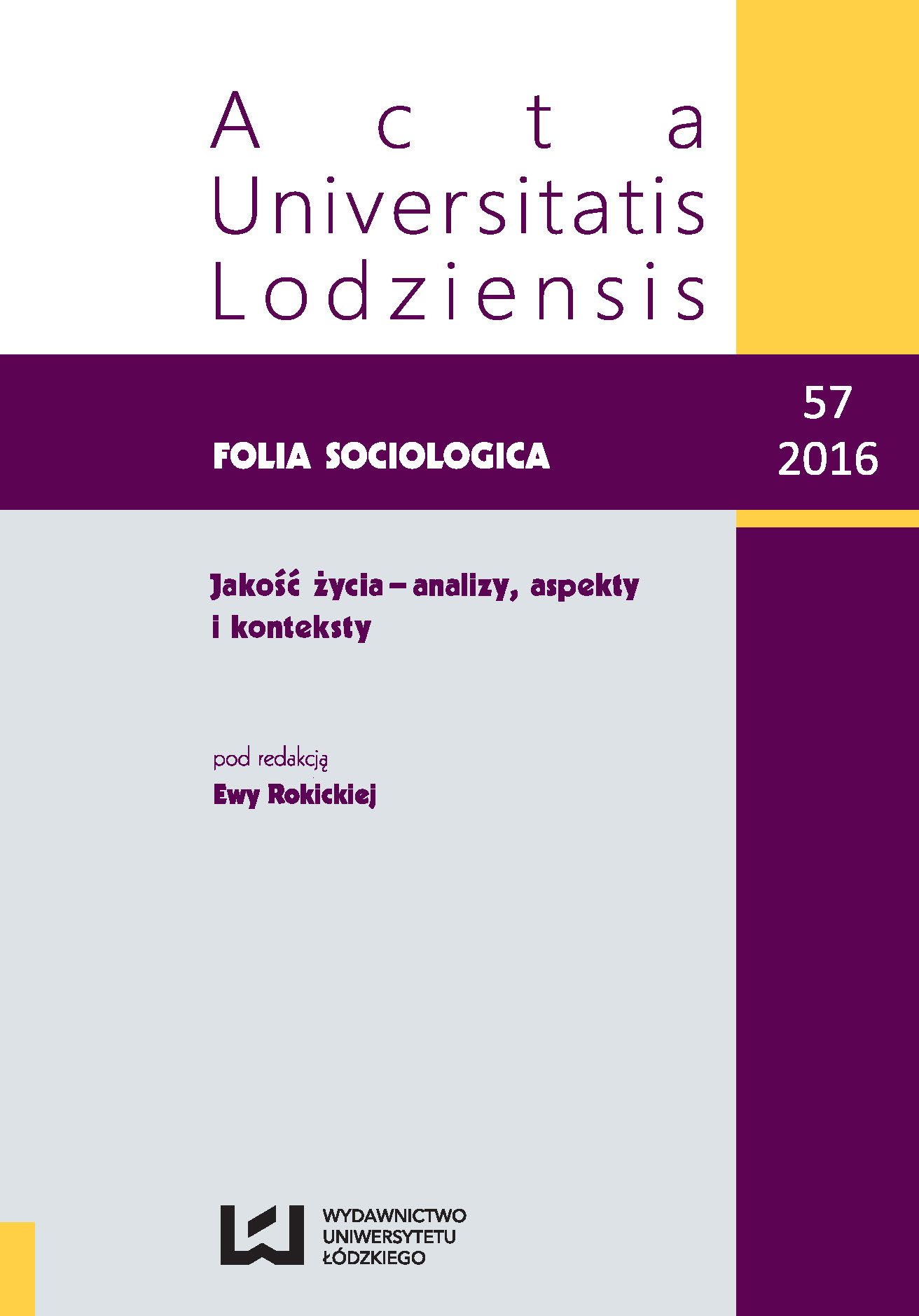Social mobility, social inequalities, and the “good society”
DOI:
https://doi.org/10.18778/0208-600X.57.05Keywords:
social mobility, social inequality, comparative researchAbstract
This paper critically examines the recent research on social mobility, focusing on Gregory Clark’s 2014 work. It starts by discussing the selected results of comparative research on intergenerational inheritance of earnings and education, and it subsequently presents the main points of Clark’s theory and his methodological innovations that lead to his thorough critique of what he calls standard social mobility research. The following section discusses selected evaluation research of the programmes aimed at boosting school achievement of children coming from poor families. Next, the recent research on the inheritance of school achievement is discussed. The results of both of these studies seem to corroborate Clark’s conclusions about the universally low level of social mobility and about the inability of substantially increasing social mobility through institutional changes. Finally, the paper shows the new relationship between social mobility and the level of social inequality that emerges from the studies under consideration and discusses the possible need of redefining the aims of egalitarian social policy in light of these recent research findings.
References
Berger P. L. (1995), Zaproszenie do socjologii, PWN, Warszawa.
Google Scholar
Bourdieu P. (1986), The Forms of Capital, [w:] J. G. Richardson (ed.), Handbook of Theory of Research for the Sociology of Education, Greenwood, New York, s. 241–258.
Google Scholar
Bourdieu P. (1993), Sociology in Question, Sage, London.
Google Scholar
Bourdieu P., Passeron J.-C. (2006), Reprodukcja. Elementy teorii systemu nauczania, Wydawnictwo Naukowe PWN, Warszawa.
Google Scholar
Bourdieu P., Wacquant L. J. D. (2001), Zaproszenie do socjologii refleksyjnej, Oficyna Naukowa, Warszawa.
Google Scholar
Braudel F. (2009), History and the Social Sciences: The Longue Durée, “Review (Fernand Braudel Center)”, 32(2), s. 171–203.
Google Scholar
Clark G. (2014), The Son Also Rises. Surnames and the History of Social Mobility, Princeton University Press, Princeton and Oxford.
Google Scholar
DOI: https://doi.org/10.1515/9781400851096
Corak M. (2013), Inequality from Generation to Generation: The United States in Comparison, [w:] R. Rycroft (ed.), The Economics of Inequality, Poverty, and Discrimination in the 21st Century, Vol. I, CA: Praeger, Santa Barbara, s. 107–123.
Google Scholar
Hertz T., Jayasundera T., Piraino P., Selcuk S., Smith N., Vershchagina A. (2007), The Inheritance of Educational Inequality: International Comparisons and Fifty-Year Trends, “B.E. Journal of Economic Analysis & Policy”, 7, s. 1–30.
Google Scholar
Goldthorpe J. H. (2007), “Cultural Capital”: Some Critical Observations, “Sociologica”, 2, s. 1–22.
Google Scholar
Hodgeson G. i Knudsen T. (2006), ‘Dismantling Lamarckism: Why Descriptions of Socio-Economic Evolution as Lamarckian are Misleading’, “Journal of Evolutionary Economics”, 16(4), s. 343–366.
Google Scholar
Johnson W., McGue M. i Iacono W. G. (2006), Genetic and environmental influences on academic achievement trajectories during adolescence, “Developmental Psychology”, 42(3), s. 514–532.
Google Scholar
Krapohl E. i in. (2014), The high heritability of educational achievement reflects many genetically influences traits, not just intelligence, PNAS, Vol. 111, No. 42, s. 15273–15278.
Google Scholar
Marks G. N. (2014), Education, Social Background and Cognitive Ability: The Decline of the Social, Routledge, London and New York.
Google Scholar
DOI: https://doi.org/10.4324/9780203759448
Nash R. (2001), Class, “Ability” and Attainment: A problem for the sociology of education, “British Journal of Sociology of Education”, 22(2), s. 189–202.
Google Scholar
Nawojczyk M. (2002), Przewodnik po statystyce dla socjologów, SPSS Polska, Kraków.
Google Scholar
Piketty T. (2015), Kapitał w XXI wieku, Wydawnictwo Krytyki Politycznej, Warszawa.
Google Scholar
Pingault J.-B. i in. (2011), Childhood trajectories of inattention and hyperactivity and prediction of educational attainment in early adulthood: A 16-year longitudinal population-based study, “American Journal of Psychiatry”, 168(11), s. 1164–1170.
Google Scholar
Puma M., Bell S., Cook R., Held C., Broene P., Jenkins F., Mashburn A., Downer J. (2012), Third Grade Follow-up to the Head Start Impact Study Final Report, U.S. Department of Health and Human Services, Administration for Children and Families, Office of Planning, Research and Evaluation, Washington DC.
Google Scholar
Rawls J. (1994), Teoria sprawiedliwości, PWN, Warszawa.
Google Scholar
Solon G. (2013), Theoretical Models of Inequality Transmission across Multiple Generations, Working Paper, Michigan State University.
Google Scholar
DOI: https://doi.org/10.3386/w18790
Todd R. D. (2000), Genetics of attention deficit/hyperactivity disorder: are we ready for molecular genetic studies?, “American Journal of Medical Genetics”, (96), s. 241–243.
Google Scholar
Downloads
Published
How to Cite
Issue
Section
License

This work is licensed under a Creative Commons Attribution-NonCommercial-NoDerivatives 4.0 International License.










